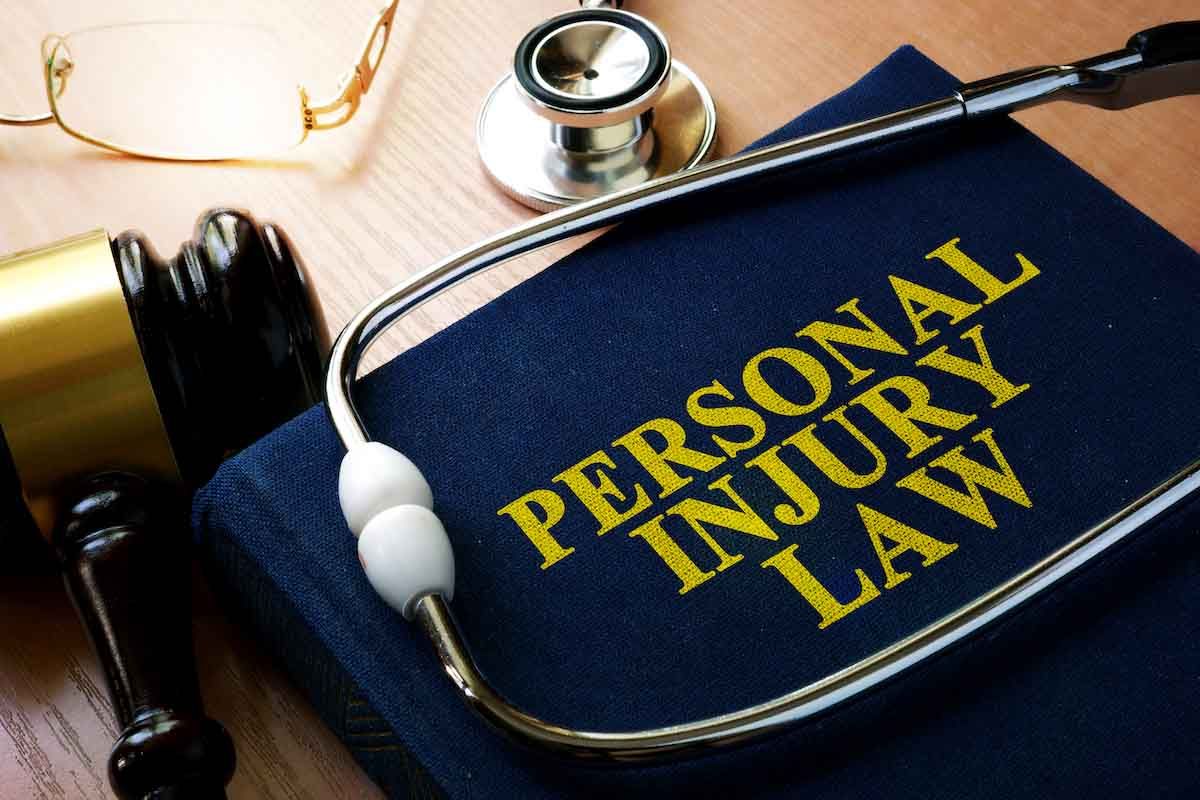Comprehending the Function of an Attorney in Personal Injury Cases: What You Required to Know
Comprehending the role of an attorney in personal injury instances is vital for those looking for justice. Lawyers play an essential role in steering through the intricacies of the legal system. They collect evidence, develop liability, and work out with insurance policy firms. Numerous individuals are unaware of the full extent of an attorney's obligations. What details approaches do they use to safeguard their clients' legal rights and safe reasonable settlement? The solutions might stun you.
The Value of Legal Depiction in Personal Injury Cases
Lots of individuals might think about dealing with individual injury insurance claims on their own, the intricacy of lawful processes often requires professional advice. An attorney specializing in personal injury law brings essential knowledge to a case, maneuvering complex lawful structures that can bewilder the inexperienced individual - Workers' Compensation Lawyer. They comprehend the subtleties of responsibility, insurance coverage settlements, and statutes of constraints, making sure that clients do not miss out on critical target dates or possibilities
Additionally, legal representation can significantly enhance the chances of getting fair settlement. Attorneys are competent in evaluating real value of cases, factoring in clinical expenses, lost incomes, and emotional distress. They possess the settlement abilities needed to deal efficiently with insurance coverage companies, who often intend to decrease payouts. Finally, having an attorney can give emotional assistance and reduce stress and anxiety for clients during a tough time, allowing them to concentrate on recuperation while their case is skillfully taken care of.
Collecting Proof and Building a Strong Situation
In personal injury instances, the collection of various sorts of evidence is necessary for developing liability and supporting a client's insurance claim. Paperwork, including clinical records, mishap records, and witness declarations, plays a crucial function in building a solid instance. Attorneys need to focus on detailed proof collecting to boost the chance of a desirable outcome for their customers.

Types of Evidence Needed
When pursuing an accident situation, the collection of durable evidence is important for establishing liability and supporting the claimant's story. Secret kinds of proof include clinical records documenting injuries, which offer an accurate basis for insurance claims of physical injury. Photo proof captures the scene of the case, while witness statements can substantiate the plaintiff's account. Furthermore, police reports might offer a main perspective on the event. Surveillance footage, when readily available, acts as a powerful tool to validate claims. Moreover, specialist testimony might clear up complex problems, especially in instances entailing technical details. Collectively, these kinds of evidence help produce a comprehensive situation that boosts the chance of a positive outcome for the victim.
Significance of Documentation
Paperwork plays a vital role in the success of personal injury cases, functioning as the foundation upon which cases are constructed. Thorough and precise documents allows attorneys to gather and offer vital proof, such as clinical records, mishap records, and witness statements. This evidence not just validates the sufferer's claims however also strengthens their case for payment. Furthermore, comprehensive documents aids in establishing the degree of injuries and the influence on the target's life, assisting in arrangements with insurance provider. By meticulously arranging and taking care of these papers, lawyers can efficiently promote for their clients, making sure that no substantial information are ignored. Ultimately, well-kept documentation is necessary for attaining positive outcomes in personal injury lawsuits.
Comprehending Liability and Negligence

In personal injury cases, lawyers play a substantial function in collecting evidence and developing a solid case around these ideas. They examine the scenarios surrounding the case, identify responsible parties, and verbalize the violation of responsibility that occurred. Comprehending these principles is essential for both clients and lawyers as they browse the intricacies of personal injury law.
Bargaining With Insurance Companies
Working out with insurer needs a calculated strategy to protect reasonable payment for personal injury insurance claims. Lawyers play a vital role in this process, leveraging their understanding of insurance coverage and negotiation tactics to support for their clients successfully. They begin by collecting thorough documentation, consisting of clinical documents, mishap records, and proof of damages, to build an engaging case.
Lawyers frequently launch the negotiation by presenting a need letter describing the case's details and the preferred compensation quantity. This letter works as a starting point for discussions. Throughout arrangements, attorneys continue to be assertive yet professional, responding to low deals with accurate evidence and highlighting the toughness of their situation.
Additionally, lawyers comprehend the relevance of patience in arrangements, as insurance provider may utilize techniques to postpone or reduce payouts. Ultimately, their experience assists ensure customers get a negotiation that accurately shows the level of their injuries and losses.
Planning for Test: What to Expect
Preparing for test in an use this link injury case entails a systematic strategy to recognize the trial process and the essential proof that will certainly exist. Lawyers should lay out the actions of the test, ensuring their clients understand what to expect. Furthermore, they must recognize and organize vital proof that will certainly support the instance and influence the jury's decision.
Test Process Introduction
The trial process in personal injury situations demands mindful organization and tactical preparation. Attorneys need to prepare their instance meticulously, guaranteeing all required documents, witness checklists, and legal arguments remain in order. The presentation of opening up statements sets the phase, enabling each side to describe their point of view. Following this, the plaintiff's instance unfolds, where experts and witnesses offer testaments sustaining the case. The protection then offers its case, typically intending to test the complainant's debates and proof. Throughout the test, lawyers should stay alert, adjusting methods as required based upon the unfolding characteristics in the court. The test ends with closing debates, where both sides summarize their positions before the court mulls over, causing a decision that can greatly affect the lives included.
Trick Evidence Discussion
While the test procedure needs a thorough understanding of legal strategies, the discussion of vital evidence stands as a crucial element in encouraging the court. Lawyers must diligently organize and collect evidence, guaranteeing it matters, acceptable, and compelling. This consists of clinical records, crash reports, witness statements, and professional point of views. Effective narration with these items of evidence can greatly influence a court's understanding. Visual aids such as photos or layouts might also enhance comprehension and retention. On top of that, attorneys have to prepare and expect counterarguments to resolve them, strengthening the stamina of their case. Ultimately, the means proof exists can figure out the end result of the trial, making it important for lawyers to grasp this crucial facet of litigation.
The Role of Professional Witnesses in Personal Injury Situations
Specialist witnesses play a vital duty in personal injury cases, as their specialized expertise can significantly influence the outcome of litigation. These specialists offer critical insights right into complicated matters that need competence beyond the average juror's understanding. As an example, clinical specialists can illuminate the level of injuries and the essential treatment, while crash repair specialists can clarify exactly how an event happened.
Their testimony often helps develop obligation and the severity of problems, making it less complicated for juries to comprehend the subtleties of a case. Furthermore, expert witnesses add to the integrity of the provided proof, strengthening debates made by attorneys. In several circumstances, their involvement can guide jury assumptions and ultimately affect settlement arrangements. Therefore, picking the right professional witness is a crucial approach for attorneys aiming to enhance their instance and advocate properly for their customers' rights and important source countervailing cases.
Shielding Your Civil Liberties Throughout the Legal Process
In the quest of justice within personal injury instances, protecting the civil liberties of customers continues to be a basic duty for lawyers. Throughout the lawful process, lawyers function as supporters, guaranteeing that clients understand their civil liberties and the implications of their decisions. They vigilantly browse intricate lawful systems, safeguarding clients from possible pitfalls that could endanger their insurance claims.
Lawyers also function to collect evidence, interact with insurer, and discuss negotiations, all while keeping their customers educated. They make certain that clients do not accept unfair deals or ignore substantial legal target dates. By supplying expert advice, lawyers equip customers to make educated choices, strengthening their legal rights.
Lawyers prepare for prospective lawsuits, outfitting clients with knowledge concerning court treatments and possible results. Social Security Disability Attorney. This comprehensive support aids clients really feel certain and secure, understanding their civil liberties are maintained throughout the lawful journey. Inevitably, an attorney's role is important for achieving a reasonable resolution in personal injury cases
Regularly Asked Questions
Exactly How Much Does Hiring an Injury Attorney Generally Price?
Employing a personal injury lawyer usually costs around 33% of the negotiation amount, though costs may differ based upon complexity and territory. Some attorneys might additionally offer contingency charge arrangements, ensuring payment just upon successful healing.
What Should I Do Quickly After an Injury Occurs?
Quickly after an injury occurs, one need to look for medical attention, document the occurrence information, collect witness info, and inform pertinent authorities. These steps are crucial for guaranteeing correct treatment and maintaining proof for any potential cases.
For how long Does a Personal Injury Situation Generally Take?
An individual injury case generally takes anywhere from a few months to several years to deal with, relying on variables like instance complexity, negotiation procedures, and court schedules. Each case is one-of-a-kind and varies considerably in period.
Can I Manage My Personal Injury Instance Without an Attorney?
Yes, an individual can deal with an accident instance without an attorney. Maneuvering via legal complexities, recognizing treatments, and bargaining settlements may verify challenging, possibly affecting the end result and compensation obtained in the instance.
What Kinds Of Problems Can I Claim in an Accident Case?
In an accident instance, one can assert different damages, consisting of clinical costs, lost incomes, discomfort and suffering, emotional distress, residential property damage, and in some circumstances, punishing problems aimed at hindering future negligence.
Recognizing the duty of an attorney in personal injury cases is important for those seeking justice. An attorney specializing in individual injury regulation brings important expertise to a case, navigating elaborate lawful frameworks that can overwhelm the untrained person. In personal injury instances, attorneys play a considerable role in collecting proof and developing a strong situation around these ideas. In the quest of justice within individual injury instances, protecting Clicking Here the legal rights of clients stays a fundamental obligation for lawyers. An individual injury case normally takes anywhere from a couple of months to several years to deal with, depending on factors like instance complexity, settlement procedures, and court schedules.